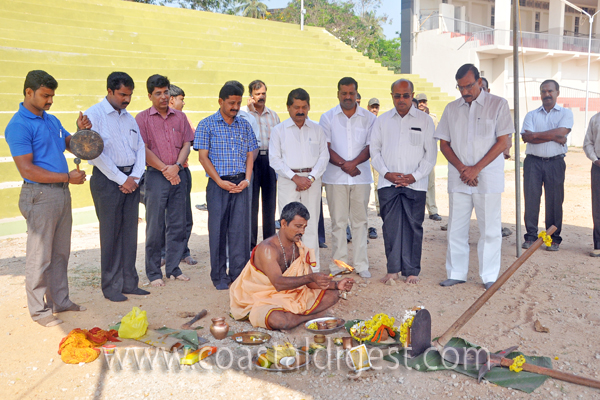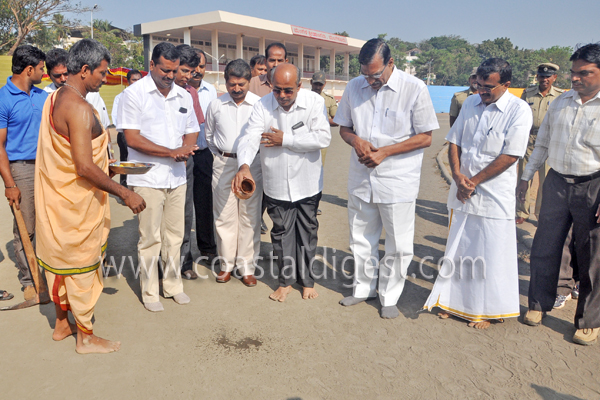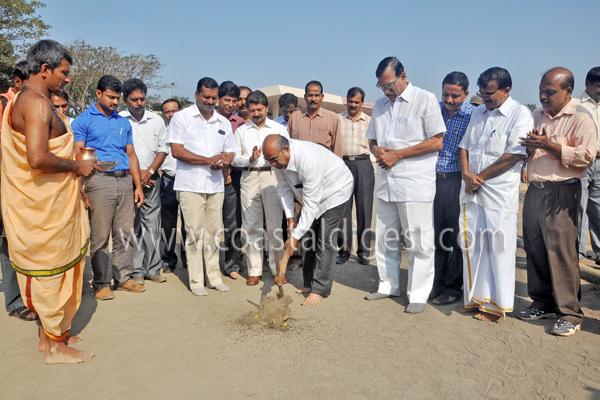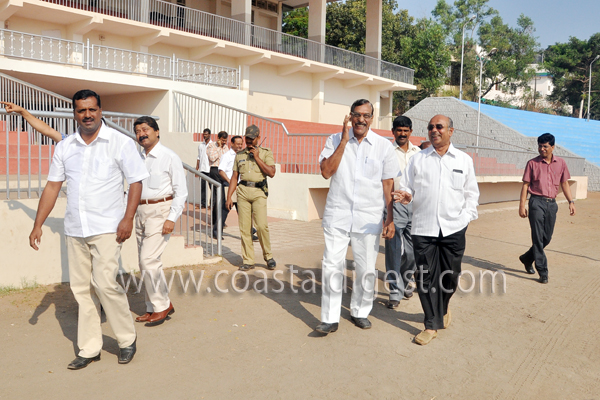
Mangalore, January 27: After several postponements, the construction work of a new state-of-the-art synthetic track at Manala Stadium in the city was commenced on Friday.
Deputy Speaker of Karnataka Legislative Assembly N Yogish Bhat performed the guddali pooja in the presence of Mangalore MLA U T Khader and Deputy Commissioner N S Chennappa Gowda.
Speaking to media persons on the occasion, Mr Bhat said that the State Government has already released Rs 3.15 crore, out of the estimated cost of Rs 8 crore for the track.
He said that currently 1D track would be constructed utilizing Rs 3.15 crore and the same track would be converted into 2D once the government released remaining fund.
Mr Bhat hoped that the track would produce international level athletes in this coastal city.
Earlier, tender had been called for providing facilities at only one side of the track. The Rs. 3.15-crore project, awarded through tender, had been bagged by the Delhi-based sports infrastructure company Syncotts International.
The Dakshina Kannada Athletics Association had made a strong case for providing various facilities on either side within the tracks ('D' area in sports parlance). The original tender had a provision for sports facilities only on one 'D'. The Dakshina Kannada District Athletics Association had made a strong case for facilities on either side.
Deputy Commissioner N.S. Channappa Gowda, who heads the Stadium Committee, informed that the administration had been negotiating with the Delhi-based company to set up facilities on either D at an additional estimated cost of Rs. 40 lakh to Rs. 45 lakh.
He said the company was given three months to complete the work. It would be given additional 15 days to provide the facilities on either side, he said.
A good stadium, which was recognised by Indian Athletics Federation, should have facilities for pole vault, javelin throw, hammer throw, discuss throw, and shot put and steeple chase events in the D area. The markings and provisions were done in such a way that any of these events could be conducted on either of the D areas, according to District Sports School Athletics Coach Vasanthkumar.









Comments
Add new comment